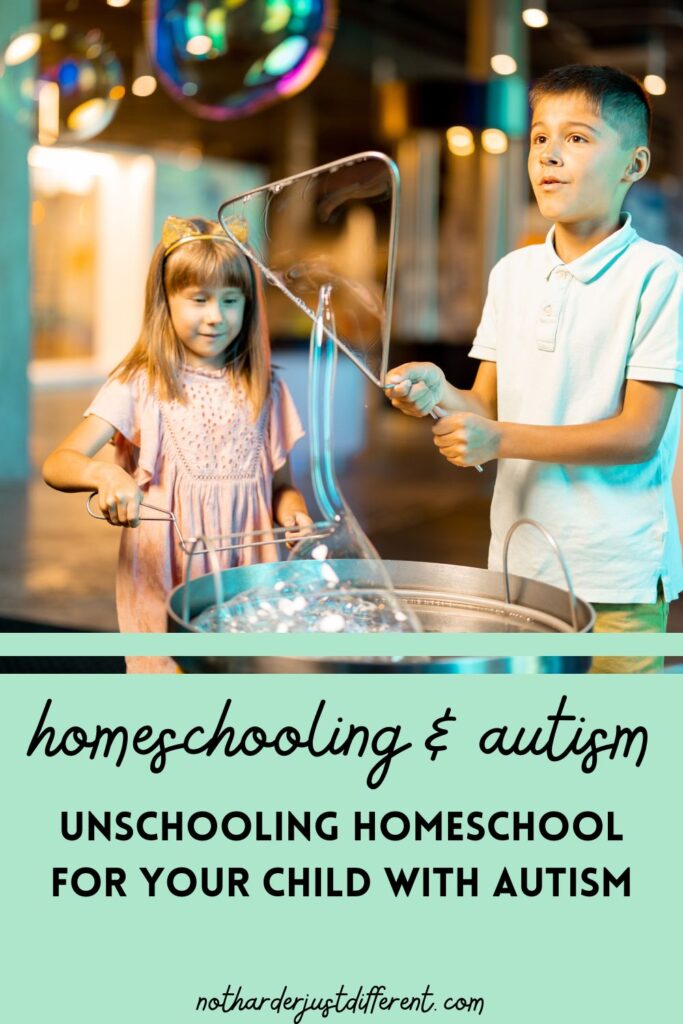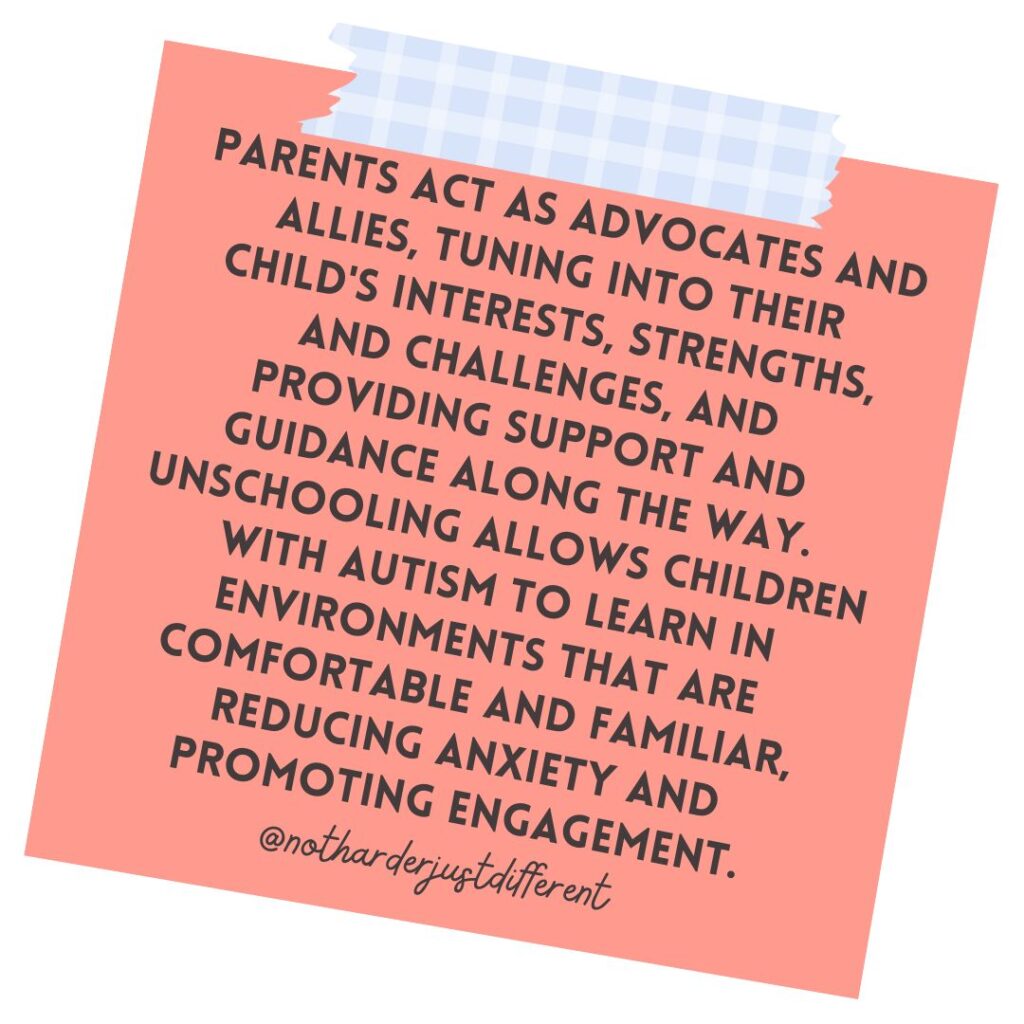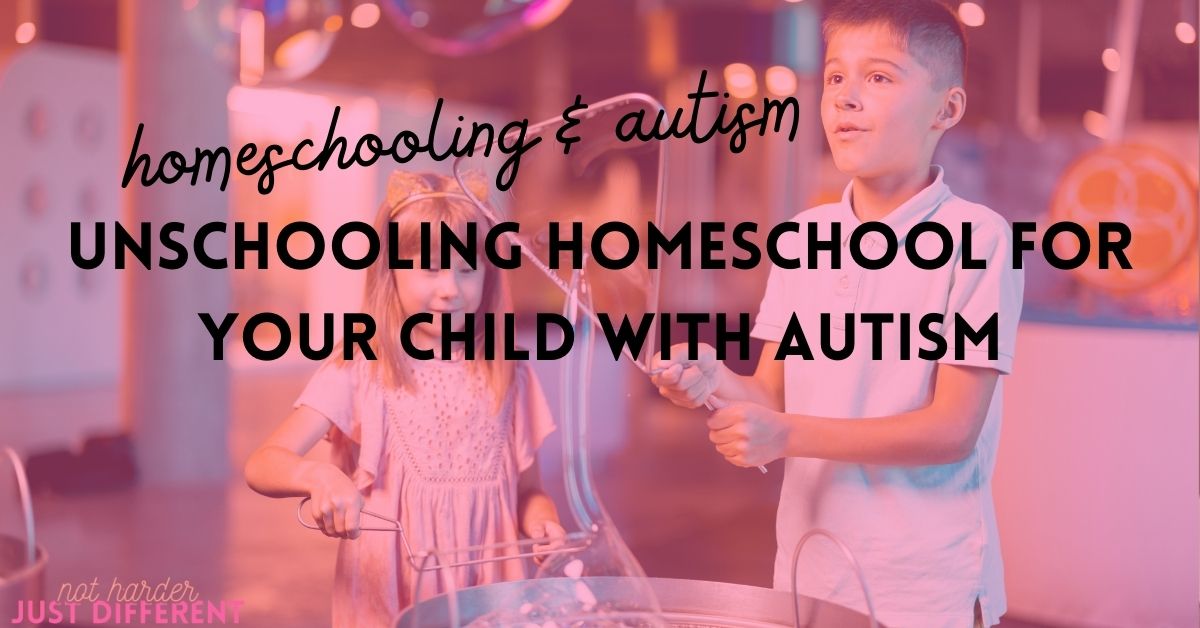Disclaimer: As a future Licensed Clinical Social Worker (LCSW) currently pursuing my master’s degree, I am passionate about sharing insights and information related to parenting, autism and homeschooling based on my personal experiences and research. However, the content shared on this blog is not intended to substitute professional advice, diagnosis, or treatment. Parenting is a deeply personal journey, and while I strive to provide valuable insights, every family and situation is unique. Readers are encouraged to consult with qualified professionals for personalized guidance tailored to their specific needs and circumstances.
Unschooling, often referred to as child-led or interest-led learning, flips traditional education on its head. Instead of structured lessons and textbooks, unschooling homeschool encourages children to follow their passions and interests. For children with autism, who often have unique interests and learning styles, unschooling provides a liberating approach to education that honors their autonomy and individuality.
Like I’ve mentioned before, we go through seasons of homeschool methods. We have had more than one unschooling season in our homeschool, and I am always amazed by all that Bug learns, even when she’s not sitting down and doing “school”. This method fits well into our lives because we are definitely a life of learning family, but it can be scary to fully give in as well! I hope this post answers any questions you have about unschooling and gives you the confidence you need to give it a try.

Unschooling Homeschool for the Child with Autism
Understanding Unschooling Homeschooling
Unschooling homeschooling is all about embracing the natural curiosity and intrinsic motivation of children. Instead of imposing a rigid curriculum, parents act as facilitators, supporting their child’s interests and providing resources and opportunities for exploration. Children are encouraged to learn through real-life experiences, hands-on projects, and meaningful interactions with the world around them.
In the world of unschooling, learning is not confined to textbooks or classrooms. Children have the freedom to pursue their interests and passions in their own time and at their own pace. For children with autism, who may have intense interests and strengths in specific areas, unschooling allows them to dive deep into subjects that captivate their imagination and fuel their curiosity.
Why Unschooling Works Well for Children with Autism
Unschooling offers several advantages that align particularly well with the needs and preferences of children with autism:
- Flexibility and Individualization: Unschooling allows children to learn according to their own interests, pace, and learning styles. For children with autism, who may have unique strengths, challenges, and sensory sensitivities, the flexibility of unschooling allows for individualized learning experiences that cater to their specific needs and preferences.
- Autonomy and Self-Determination: Unschooling empowers children to take ownership of their learning journey and make decisions about what, when, and how they learn. For children with autism, who may benefit from having control over their environment and choices, the autonomy afforded by unschooling promotes independence, self-confidence, and self-determination.
- Natural Learning Opportunities: Unschooling encourages learning to happen organically, through real-life experiences, exploration, and discovery. For children with autism, who often have a natural curiosity and affinity for hands-on learning, unschooling provides opportunities to engage with the world in meaningful and authentic ways, fostering curiosity, creativity, and critical thinking skills.
- Reduced Anxiety and Stress: Traditional educational settings can be overwhelming for children with autism, leading to increased anxiety and stress. Unschooling offers a low-pressure environment where learning occurs in natural, relaxed settings. Children with autism can explore their interests and pursue their passions without the fear of failure or judgment, promoting a positive attitude towards learning and a sense of well-being.
- Focus on Practical Life Skills: Unschooling encourages children to learn through practical, real-world experiences, including daily living skills such as cooking, gardening, and budgeting. For children with autism, who may benefit from explicit instruction and practice in practical life skills, unschooling provides opportunities to develop essential life skills in a meaningful and purposeful context.
- Emphasis on Social and Emotional Learning: Unschooling places a strong emphasis on social and emotional learning, fostering empathy, communication, and interpersonal skills. Children with autism can engage in social interactions and collaborative projects within the context of their interests and passions, building meaningful connections with peers and developing essential social skills in a supportive and inclusive environment.

Tailoring Unschooling for Autism
Adapting unschooling for children with autism requires a flexible and responsive approach. Parents act as advocates and allies, tuning into their child’s interests, strengths, and challenges, and providing support and guidance along the way. Unschooling allows children with autism to learn in environments that are comfortable and familiar, reducing anxiety and promoting engagement.
In unschooling, the entire world becomes a classroom. Children with autism have the opportunity to explore their interests in a variety of settings, from museums and libraries to parks and community centers. Parents can incorporate sensory-rich experiences, hands-on activities, and social interactions into their child’s learning journey, tailoring the curriculum to meet their unique needs and preferences.
Practical Tips and Strategies
Let’s dive into the practical side of unschooling homeschooling! Start by creating a supportive and nurturing learning environment that honors your child’s autonomy and fosters a love for learning. Surround your child with books, materials, and resources that align with their interests and passions, and encourage exploration and discovery.
Follow your child’s lead and pay attention to their cues and interests. Take advantage of teachable moments and opportunities for learning that arise naturally in everyday life. Keep an open mind and be willing to explore new topics and activities alongside your child, embracing the spirit of curiosity and adventure that defines unschooling.
Embracing the Unschooling Philosophy
At the heart of unschooling lies a profound trust in the innate curiosity and intelligence of children. Unschooling celebrates the joy of learning and the endless possibilities that arise when children are given the freedom to explore and discover on their own terms. By embracing the principles of unschooling homeschooling, parents can create a nurturing and empowering learning environment that honors the unique strengths and abilities of their child with autism. Let’s embark on this liberating journey together and unlock the extraordinary potential within our children through the magic of unschooling homeschooling!

